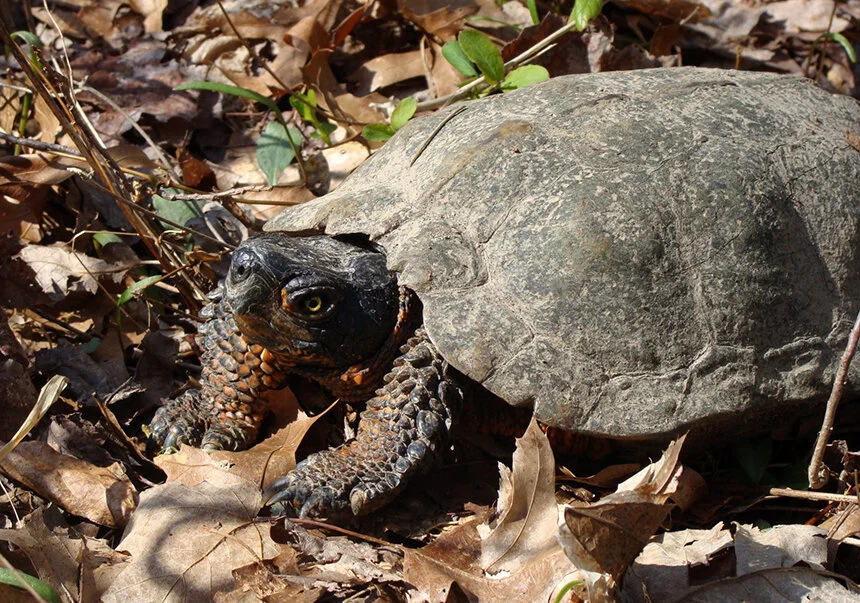Northeast Works to Protect Rare Turtle, Combat Poaching
By ecoRI News staff
 |
| Wood turtle populations in the Northeast are in decline for various reasons, including from the impacts of the climate crisis. (Colin Osborn/USFWS) |
Now with a nearly $1 million federal grant, these partners will advance a
collaborative effort to conserve wood turtles across 13 states, including Rhode Island, Massachusetts, and Connecticut. Funding from the U.S. Fish & Wildlife Service’s State
Wildlife Grant Program will support continued scientific collaboration to address the range-wide decline of wood turtles.
The grant will allow the states — the Massachusetts Division of Fisheries and Wildlife is the lead agency for the grant — to implement time-sensitive management actions at the region’s most important wood turtle sites. The funding will also support science and coordination to address illegal collection, a growing threat to wood turtles and other at-risk turtle species.
Law-enforcement officials have reported a recent increase in the trafficking of native turtles from the United States. Most are exported to Asia, but many are sold domestically, sometimes falsely advertised as “captive-bred” pets.
“Poaching subtracts an unknown number of turtles from wild populations that are already stressed,” said Julie Slacum, a U.S. Fish & Wildlife Service biologist.
As part of a coordinated response to the poaching threat, the grant will support housing up to 50 wood turtles confiscated by law-enforcement officials for up to three years at the Bristol County Agricultural High School in Dighton, Mass.
The Northeast partners have already standardized data collection, analyzed data from thousands of field surveys by hundreds of volunteers and biologists, and begun a comprehensive genetics analysis to identify patterns between wood turtle populations in different areas.
The grant will allow a much more strategic approach to conserving the most important wood turtle populations and minimizing declines elsewhere. Partners will follow recommendations in the regional
conservation plan for the wood turtle.
Actions to support the wood turtle will also benefit other species, including freshwater mussels, fish, amphibians, and other turtle species, according to the U.S. Fish & Wildlife Service.